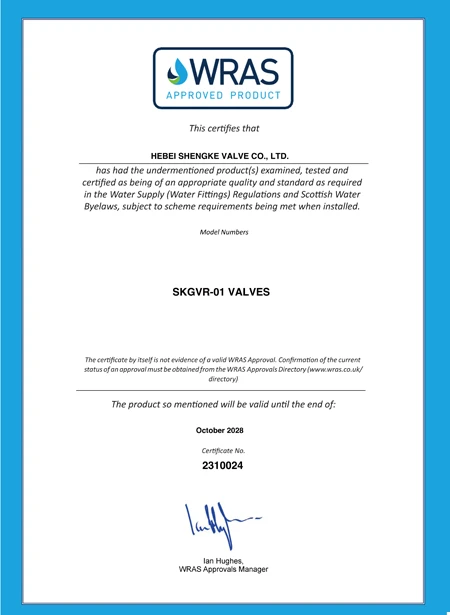11 月 . 01, 2024 09:47 Back to list
Understanding the Function and Importance of Gate Valves in Fluid Control Systems
The Importance of Gate Valves in Industrial Applications
Gate valves are essential components in various industrial applications, functioning primarily to start or stop the flow of liquids or gases within a pipeline system. Their design, characterized by a sliding disc (or gate) that moves perpendicular to the flow, provides a reliable means of controlling the flow rate. This article delves into the significance, workings, and advantages of gate valves.
Gate valves are widely used in industries such as oil and gas, water treatment, power generation, and chemical processing. They can handle a variety of substances, from corrosive chemicals to high-pressure steam. One of the prime attributes of a gate valve is its ability to provide minimal resistance to flow when fully opened, making it an ideal choice for applications where a smooth, uninterrupted flow is crucial.
The fundamental operation of a gate valve is relatively straightforward. When the valve is fully open, the gate is retracted to allow fluid to pass through with little obstruction. Conversely, when the valve is closed, the gate is lowered into the flow path, effectively blocking the fluid. This simple mechanism is highly efficient, which explains its widespread use. Moreover, gate valves typically feature a threaded or handwheel actuator that permits precise control over the opening and closing of the valve.
One significant advantage of gate valves is their sealing capability
. These valves are designed to achieve a tight seal when closed, preventing any leakage in the system. This is particularly important in industries where even minimal leakage can lead to significant safety hazards or financial losses. The construction of gate valves allows them to withstand high pressures, making them suitable for critical applications in hazardous environments.gate valve

Additionally, gate valves are known for their durability and longevity. They are constructed from robust materials such as stainless steel, cast iron, or brass, depending on the application requirements. This durability, coupled with proper maintenance, can result in a lengthy lifespan, providing a cost-effective solution for industries relying on efficient flow control.
However, it is essential to note that gate valves are not ideal for throttling applications. When partially opened, the disk can create turbulence, leading to erosion and wear over time. Therefore, gate valves are best used in applications where they are either fully open or fully closed, ensuring they maintain their integrity and effectiveness.
In recent years, advancements in valve technology have led to the development of more sophisticated gate valves, such as those with automated controls that enhance operational efficiency. These innovations not only improve safety protocols but also aid in the precise management of fluid dynamics within complex pipeline systems.
In conclusion, gate valves play a critical role in ensuring the smooth operation of various industrial processes. Their ability to provide a reliable seal, handle high pressures, and maintain a low flow resistance makes them indispensable for applications where fluid control is essential. As industries continue to evolve, so will the technology surrounding gate valves, ensuring they remain a cornerstone of fluid management systems worldwide. Whether in oil refineries or wastewater treatment facilities, the significance of gate valves cannot be overstated, highlighting the importance of this simple yet vital component in modern engineering.
Share
-
Understanding the Differences Between Wafer Type Butterfly Valve and Lugged Butterfly ValveNewsOct.25,2024
-
The Efficiency of Wafer Type Butterfly Valve and Lugged Butterfly ValveNewsOct.25,2024
-
The Ultimate Guide to Industrial Swing Check Valve: Performance, Installation, and MaintenanceNewsOct.25,2024
-
Superior Performance with Industrial Swing Check Valve: The Essential Valve for Any SystemNewsOct.25,2024
-
Industrial Swing Check Valve: The Ideal Solution for Flow ControlNewsOct.25,2024
-
You Need to Know About Industrial Swing Check Valve: Functionality, Scope, and PerformanceNewsOct.25,2024